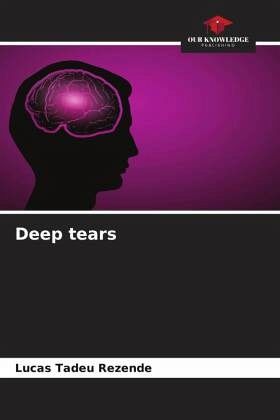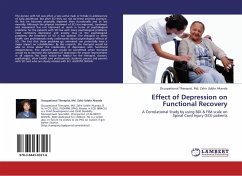
Deep tears
Versandkostenfrei!
Versandfertig in 6-10 Tagen
24,99 €
inkl. MwSt.

PAYBACK Punkte
12 °P sammeln!
The aim of this work was to study depressed patients' perception of themselves through the classic depressive icon treated at the Psychosocial Care Centre (CAPS) in the municipality of Pindamonhangaba, located in the eastern cone of São Paulo. To this end, a qualitative study was carried out, using a systematisation of mental health nursing care together with a semi-structured interview. Nursing care proved to be satisfactory in terms of the initial aim of studying depressive psychopathology. There is, however, a problem regarding causal determination in the social-cognitive explanation of de...
The aim of this work was to study depressed patients' perception of themselves through the classic depressive icon treated at the Psychosocial Care Centre (CAPS) in the municipality of Pindamonhangaba, located in the eastern cone of São Paulo. To this end, a qualitative study was carried out, using a systematisation of mental health nursing care together with a semi-structured interview. Nursing care proved to be satisfactory in terms of the initial aim of studying depressive psychopathology. There is, however, a problem regarding causal determination in the social-cognitive explanation of depression. Convictions of failure, personal guilt and negative attributions certainly underpin depression. Depressive thoughts coincide with a depressed mood. A depressed mood brings negative thoughts and it is in this state that the depressed person's perception becomes blurred, distorted and fragmented. Perception plays a decisively important role in the organism's adaptation to the environment and is determined not only by the characteristics of the stimulus but also by the characteristics of the subject.












